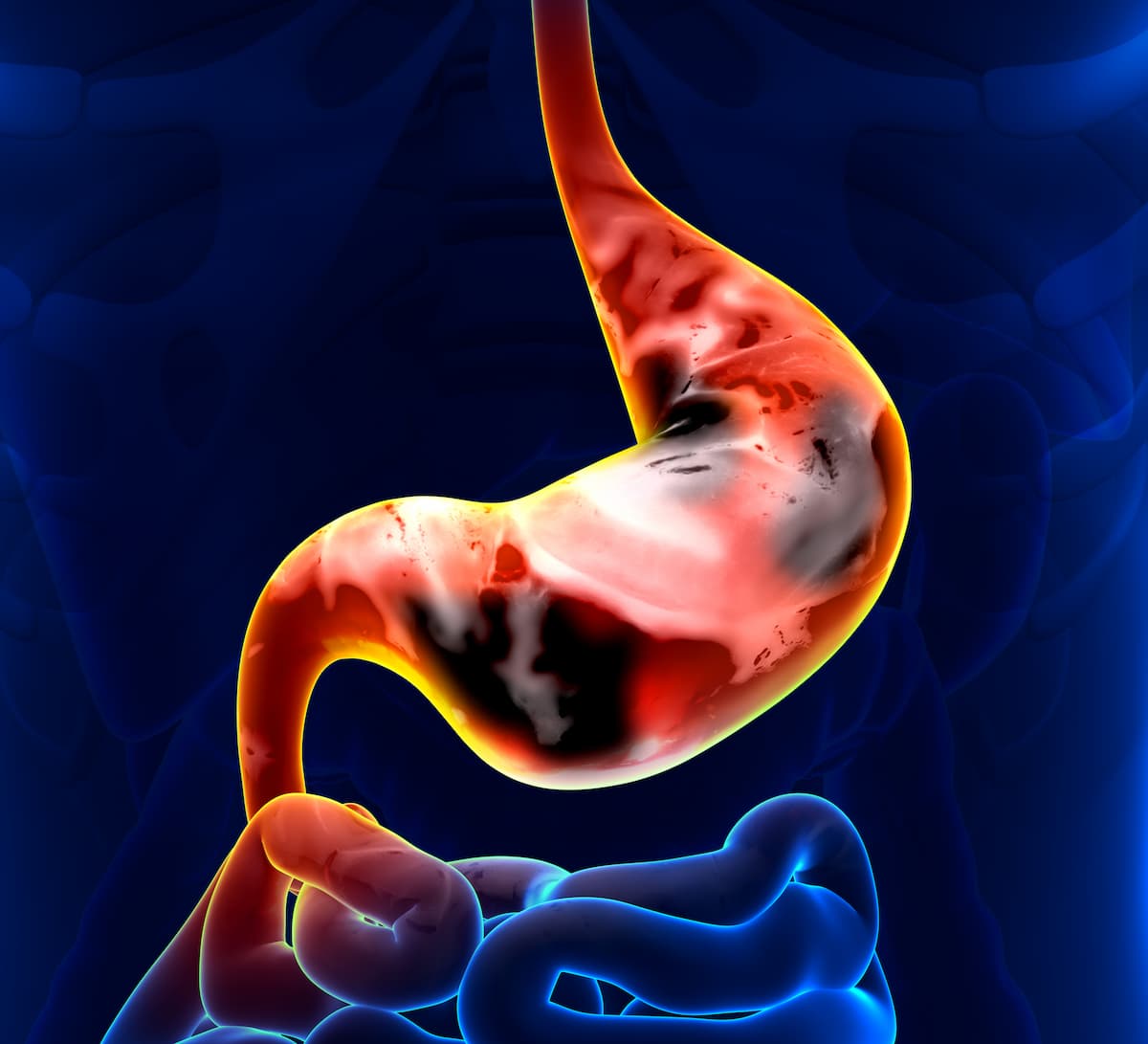Frontline Pembrolizumab Combo Obtains EU Approval for HER2+ Gastric Cancer
Data from the phase 3 KEYNOTE-811 trial highlight a trend towards improved overall survival among patients with HER2-positive, PD-L1–positive advanced gastric or gastroesophageal junction adenocarcinoma receiving pembrolizumab, trastuzumab, and chemotherapy.
The FDA granted accelerated approval to pembrolizumab, trastuzumab, and chemotherapy as a treatment for locally advanced or metastatic gastric or GEJ carcinoma that is HER2 positive in May 2021.

The European Commission has approved a combination of pembrolizumab (Keytruda) plus trastuzumab (Herceptin) and fluoropyrimidine- and platinum-based chemotherapy for the frontline treatment of patients with locally advanced unresectable or metastatic HER2-positive, PD-L1–positive gastric or gastroesophageal junction (GEJ) adenocarcinoma, according to a press release from Merck.1
The approval was supported by findings from the phase 3 KEYNOTE-811 study (NCT03615326) in which investigators reported a statistically significant improvement in progression-free survival and objective response rate with the pembrolizumab combo vs trastuzumab and chemotherapy.2 A trend towards improved overall survival was also observed in the experimental arm, although it was not considered to be statistically significant.
“Patients in the [European Union] EU diagnosed with HER2-positive advanced gastric cancer [have] an aggressive disease associated with a poor prognosis, underscoring the need for additional first-line treatment options for these patients,” Scot Ebbinghaus, MD, vice president of global clinical development at Merck Research Laboratories, said in the press release. “With today’s approval of [pembrolizumab], we’re proud that patients whose tumors express PD-L1 with a combined positive score [of 1 or higher] and health care providers in the EU will have an option that includes immunotherapy for this difficult-to-treat disease.”
The FDA granted accelerated approval to pembrolizumab, trastuzumab, and chemotherapy as a treatment for locally advanced or metastatic gastric or GEJ carcinoma that is HER2 positive in May 2021.3 The regulatory decision was also based on data from the phase 3 KEYNOTE-811 study.
References
- European Commission approves KEYTRUDA® (pembrolizumab) plus trastuzumab and chemotherapy as first-line treatment for HER2-positive advanced gastric or gastroesophageal junction (GEJ) adenocarcinoma expressing PD-L1 (CPS ≥1). News release. Merck. August 29, 2023. Accessed August 29, 2023. https://bit.ly/3PhgAeA
- KEYTRUDA® (pembrolizumab) plus trastuzumab and chemotherapy met primary endpoint of progression-free survival as first-line treatment in patients With HER2-positive advanced gastric or gastroesophageal junction (GEJ) adenocarcinoma. News release. Merck. News release. June 16, 2023. Accessed August 29, 2023. bit.ly/3p903iB
- FDA approves Merck’s KEYTRUDA (pembrolizumab) combined with trastuzumab and chemotherapy as first-line treatment in locally advanced unresectable or metastatic HER2-positive gastric or gastroesophageal junction adenocarcinoma. News release. Merck. May 5, 2021. Accessed August 29, 2023. https://bit.ly/2SjmdOj